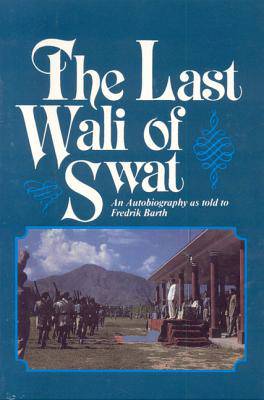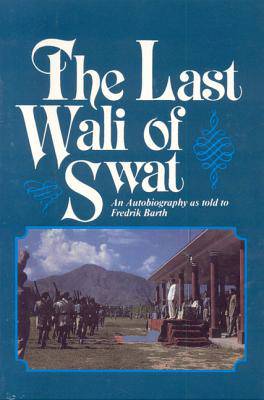
Bedankt voor het vertrouwen het afgelopen jaar! Om jou te bedanken bieden we GRATIS verzending (in België) aan op alles gedurende de hele maand januari.
- Afhalen na 1 uur in een winkel met voorraad
- In januari gratis thuislevering in België
- Ruim aanbod met 7 miljoen producten
Bedankt voor het vertrouwen het afgelopen jaar! Om jou te bedanken bieden we GRATIS verzending (in België) aan op alles gedurende de hele maand januari.
- Afhalen na 1 uur in een winkel met voorraad
- In januari gratis thuislevering in België
- Ruim aanbod met 7 miljoen producten
Zoeken
Omschrijving
History has moved very swiftly in some parts of Asia, and the personal recollections of Miangul Jahanzeb, the Wali of Swat, span a breath-taking series of transformations of which he himself was partly architect, partly prominent participant or privileged spectator. When he was born in 1908 the Swat valley formed a complex but stateless society of several hundred thousand members, linked to the archaic cosmopolitanism of Inner Asia but hardly touched by centuries of external influence. Indeed, the Swat valley had never even been seen by an Englishman until 13 years before the Wali's birth. During this childhood, his father emerged as the creator and ruler of a new state in this tribal territory. For twenty years, from 1949 to 1969, Wali Sahib himself ruled this state until it was merged with Pakistan through a peaceful transfer of authority.
Specificaties
Betrokkenen
- Uitgeverij:
Inhoud
- Aantal bladzijden:
- 199
- Taal:
- Engels
- Reeks:
Eigenschappen
- Productcode (EAN):
- 9789748299709
- Verschijningsdatum:
- 1/01/2015
- Uitvoering:
- Paperback
- Formaat:
- Trade paperback (VS)
- Afmetingen:
- 139 mm x 213 mm
- Gewicht:
- 312 g

Alleen bij Standaard Boekhandel
+ 49 punten op je klantenkaart van Standaard Boekhandel
Beoordelingen
We publiceren alleen reviews die voldoen aan de voorwaarden voor reviews. Bekijk onze voorwaarden voor reviews.








